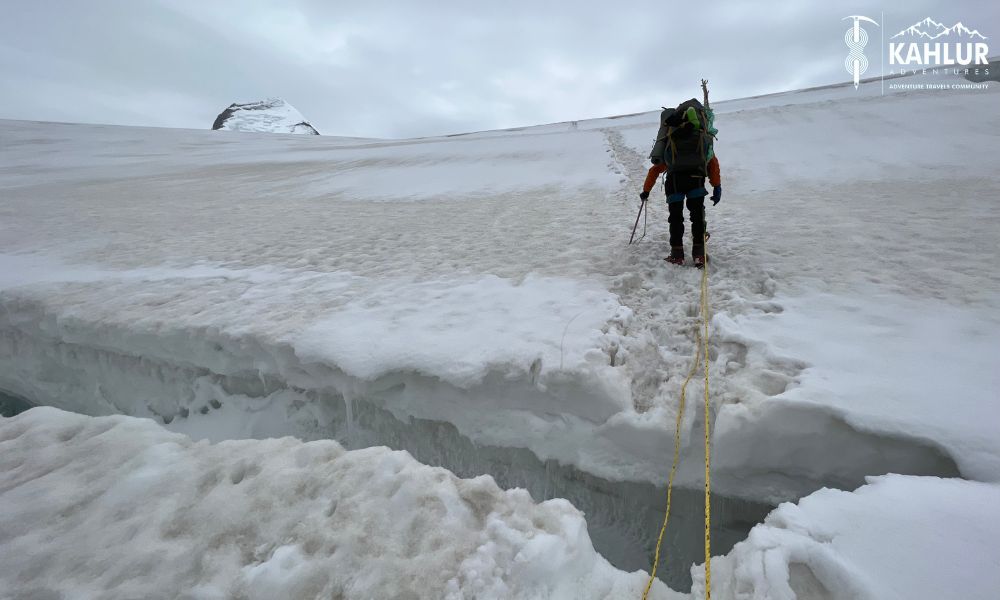
21 Apr Pre-Everest training Mount Nun Kun and Satopanth India
Mountaineering in India
India is home to the mighty Himalayan mountain range that stretches across the northern borders of the country. It is a well-known fact that the Himalayas offer some of the best mountaineering expeditions in the world, attracting adventure seekers from all corners of the globe. The Indian Himalayas, in particular, provide an unparalleled mountaineering experience, with numerous challenging peaks and a breathtaking view of the surrounding landscapes.
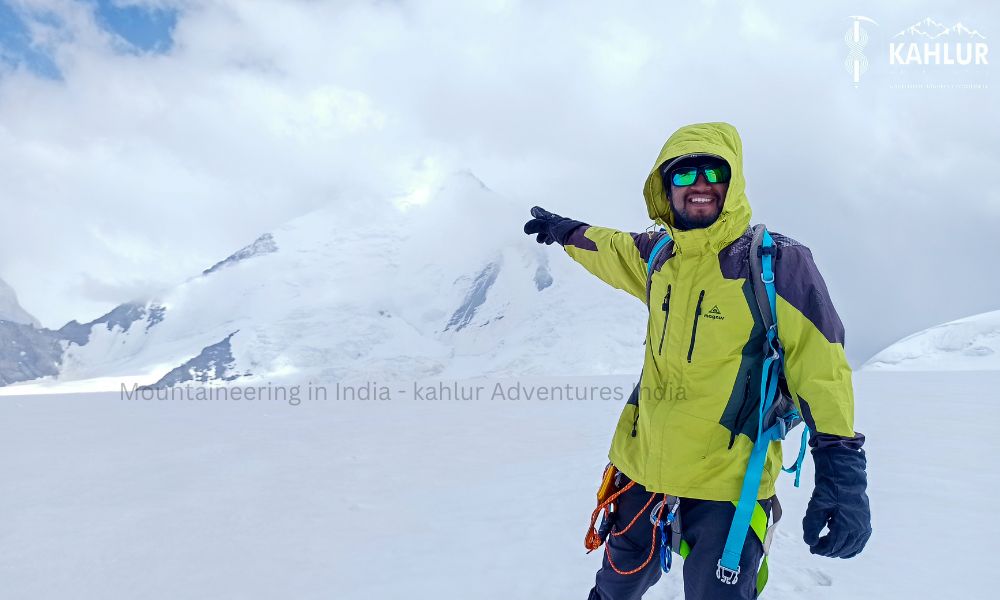
Mountaineering in the Indian Himalayas has a rich history, dating back to the early 1900s when British mountaineers first attempted to climb the peaks. Since then, the Indian mountaineering community has grown, with several clubs and organizations that promote mountaineering as a sport and adventure activity. Today, mountaineers from all over the world come to the Indian Himalayas to conquer the challenging peaks and experience the thrill of climbing in high-altitude environments.
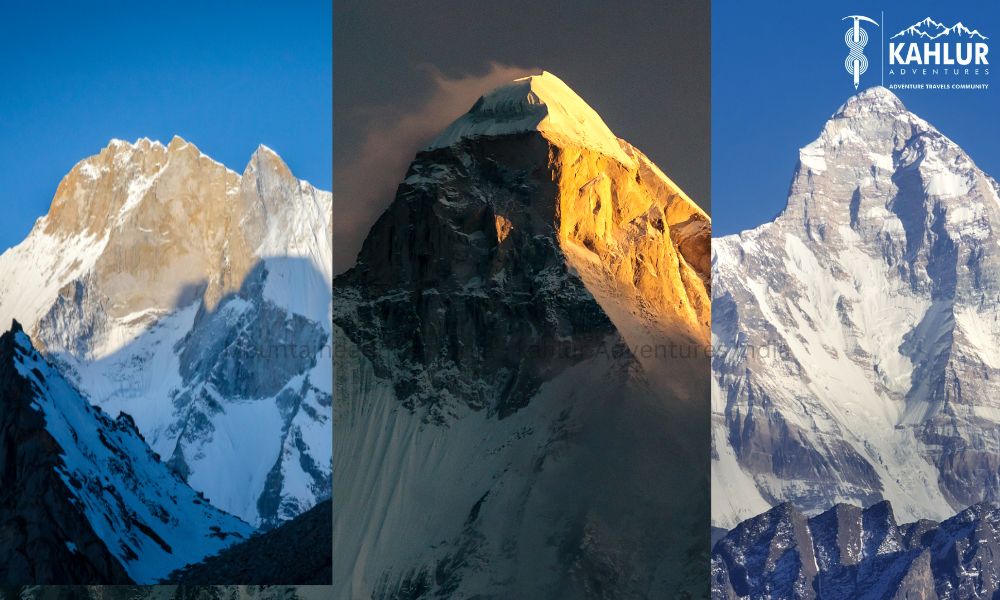
Popular mountaineering expeditions in the Indian Himalayas include climbing peaks such as Mount Shivling, Nanda Devi East, Mount CB 13, and Mount Meru. These peaks offer varying levels of difficulty, and mountaineers can choose a peak that suits their level of expertise and experience. Most mountaineering expeditions in the Indian Himalayas require the climbers to have some level of experience, training, and fitness, as these peaks can be challenging and dangerous.
Why to climb in Indian Himalayas?
The Indian Himalayas, a towering range that stretches for over 2,500 kilometers, is one of the most awe-inspiring natural wonders in the world. The majestic peaks, glacial valleys, pristine rivers, and verdant forests that make up this majestic mountain range have been attracting climbers and trekkers from all over the world for centuries. But why should you climb in the Indian Himalayas? Here are just a few reasons.
Firstly, the Indian Himalayas are home to some of the highest and most challenging peaks in the world, including the legendary Mount Nanda Devi East. With elevations ranging from 5,000 to 8,000 meters, the peaks of the Indian Himalayas offer a thrilling challenge for even the most experienced mountaineers. Whether you’re a seasoned climber looking for your next big challenge or a beginner looking to test your limits, the Indian Himalayas offer something for everyone.
Secondly, the Indian Himalayas are blessed with some of the most stunning landscapes on the planet. From the stark beauty of Ladakh to the lush green forests of Sikkim, the Indian Himalayas are a treasure trove of natural beauty. Climbing in the Indian Himalayas is not just about reaching the summit of a mountain; it’s also about immersing yourself in the breathtaking landscapes and cultures of this majestic region.
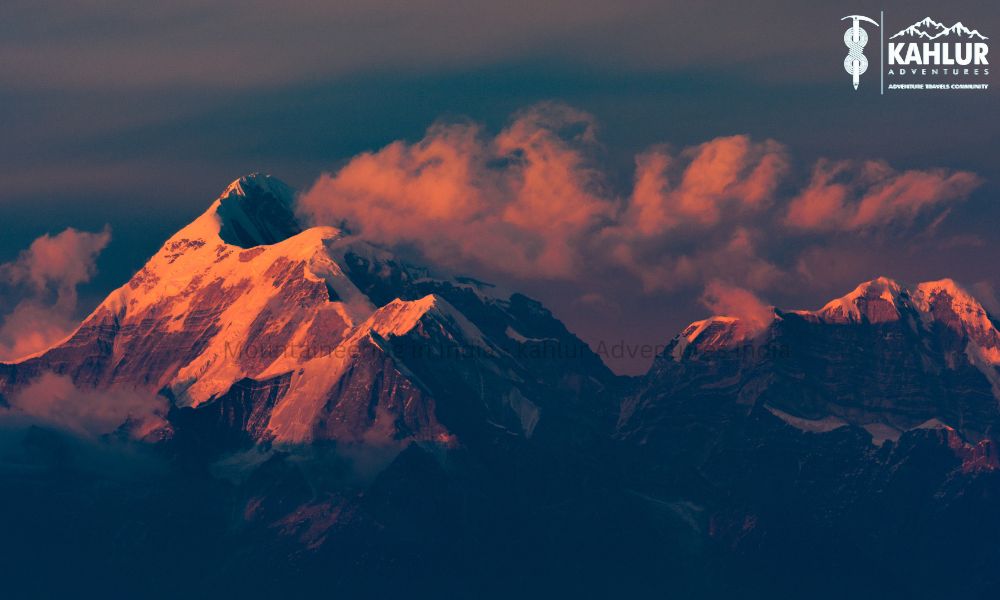
Thirdly, climbing in the Indian Himalayas is an opportunity to experience the rich history and culture of this ancient land. From the colorful prayer flags that adorn the mountainsides to the monasteries and temples that dot the landscape, the Indian Himalayas are steeped in centuries of tradition and spirituality. Climbing in the Indian Himalayas is not just a physical challenge; it’s also a journey of the soul.
Finally, climbing in the Indian Himalayas is an opportunity to connect with the local people, who are known for their warmth, hospitality, and generosity. Whether you’re staying in a cozy homestay or sharing a meal with a local family, the people of the Indian Himalayas will make you feel right at home. Climbing in the Indian Himalayas is not just a solo endeavor; it’s also a chance to forge lifelong friendships and connections.
Why Pre Everest training is Important ?
Pre-Everest training is essential for anyone who wants to climb Everest safely and successfully. It helps you build the necessary physical and mental strength, acclimatize to the high altitude conditions, and gain valuable experience and skills.
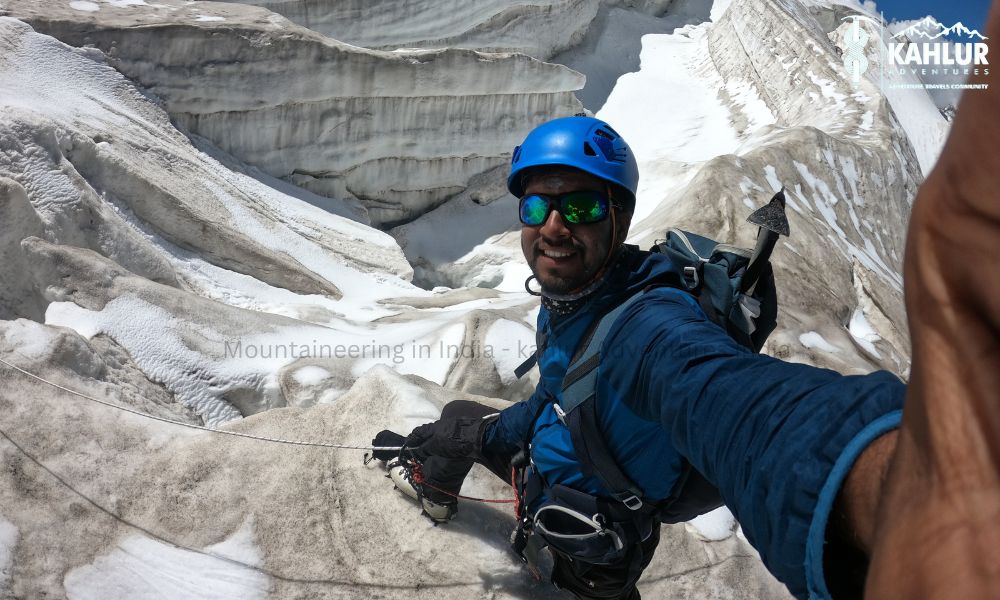
Pre Everest training is important for several reasons:
Physical Preparation: Climbing Everest is a strenuous activity that requires excellent physical fitness. Pre-Everest training helps you build the necessary strength, endurance, and agility required for the climb.
Mental Preparation: Climbing Everest is a mentally challenging activity, and pre-Everest training helps you prepare for the physical and mental challenges that you will face during the climb.
Acclimatization: The altitude on Everest can be challenging, and pre-Everest training helps you acclimatize to the high altitude conditions.
Experience: Pre-Everest training provides you with valuable experience and skills that are essential for the Everest climb, such as navigation, camp management, and teamwork.
Pre Everest training in India
Mountaineering is a sport that requires discipline, physical fitness, and mental strength. Climbing Mount Everest is considered one of the most challenging feats in the world, and many aspiring climbers prepare for years before attempting the summit. Pre Everest training is crucial, and one of the most effective ways to train is to climb other peaks that are similar in difficulty and altitude. In India, there are several mountains that serve as excellent training grounds for aspiring Everest climbers, including Mount Nun 7135 M, Mount Kun 7077 M, and Satopanth 7075 M.
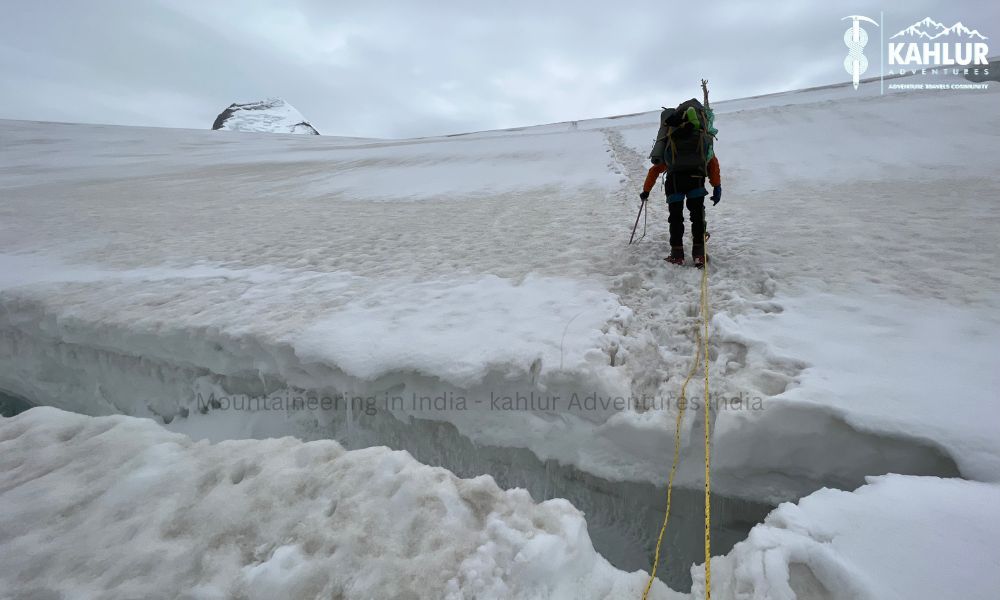
Kahlur Adventures is a leading adventure travel company based in India that specializes in organizing mountaineering expeditions to these peaks. With a team of experienced guides, climbing sherpa and support staff who ensure the safety and success of their clients Kahlur Adventures is one of the best Mountaineering/Adventure company in India.
Mount Nun 7135 M Expedition
is located in the Zanskar range of the Himalayas and is considered one of the most challenging peaks in the region. The climb to the summit requires technical skills, physical fitness, and mental strength. Kahlur Adventures offers a 21-day expedition to Mount Nun that includes acclimatization treks, technical training, and summit attempts. The expedition starts in Leh, where climbers spend a few days acclimatizing to the altitude. They then trek to the base camp of Mount Nun, which takes around six days. At the base camp, climbers undergo technical training, which includes learning how to use crampons, ice axes, and ropes. The training is essential as climbers need to navigate steep ice and rock faces on the way to the summit.
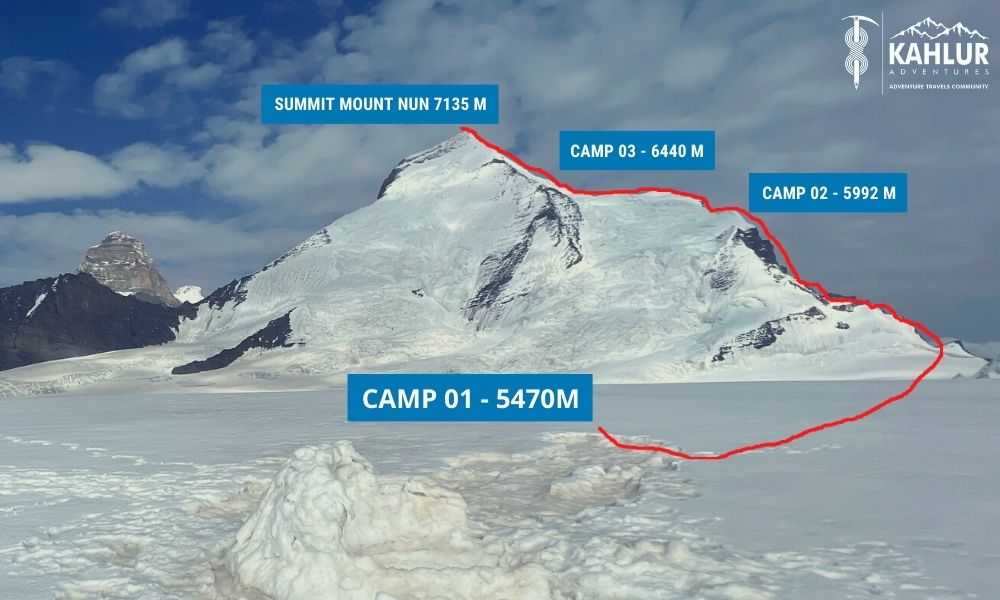
The climb to the summit of Mount Nun takes around 10 days and involves several campsites. The first campsite is at an altitude of around 5000 meters, and climbers spend a few days here to acclimatize. The second campsite is at around 6000 meters, and climbers spend a few more days here before pushing on to the higher camps. The final campsite is at around 6700 meters, and climbers make a summit push from here. The climb to the summit is challenging and involves navigating steep ice and rock faces. The view from the top is breathtaking and makes the effort worth it.
Mount Kun 7077 M Expedition
is another peak in the Zanskar range of the Himalayas that serves as an excellent training ground for Everest climbers. The climb to the summit requires technical skills and physical fitness but is considered less challenging than Mount Nun. Kahlur Adventures offers a 16-day expedition to Mount Kun that includes acclimatization treks, technical training, and summit attempts.
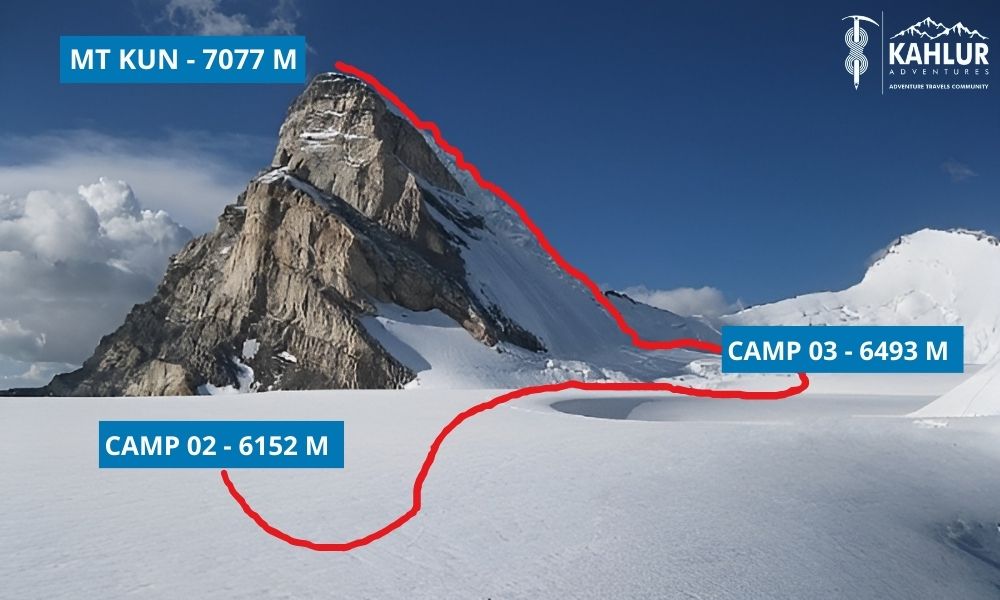
The expedition starts in Leh, where climbers spend a few days acclimatizing to the altitude. They then trek to the base camp of Mount Kun, which takes around four days. At the base camp, climbers undergo technical training, which includes learning how to use crampons, ice axes, and ropes. The climb to the summit of Mount Kun takes around six days and involves several campsites. The first campsite is at an altitude of around 4200 meters, and climbers spend a few days here to acclimatize. The second campsite is at around 5500 meters, and climbers spend a few more days here before pushing on to the higher camps. The final campsite is at around 6500 meters, and climbers make a summit push from here. The climb to the summit is challenging but less technical than Mount Nun. The view from the top is stunning and provides an excellent opportunity for climbers to practice their mountaineering skills.
Satopanth 7075 M Expedition
is a peak located in the Garhwal region of the Himalayas and is considered one of the most beautiful peaks in the area. The climb to the summit requires technical skills and physical fitness and is an excellent training ground for Everest climbers. Kahlur Adventures offers a 20-day expedition to Satopanth that includes acclimatization treks, technical training, and summit attempts.
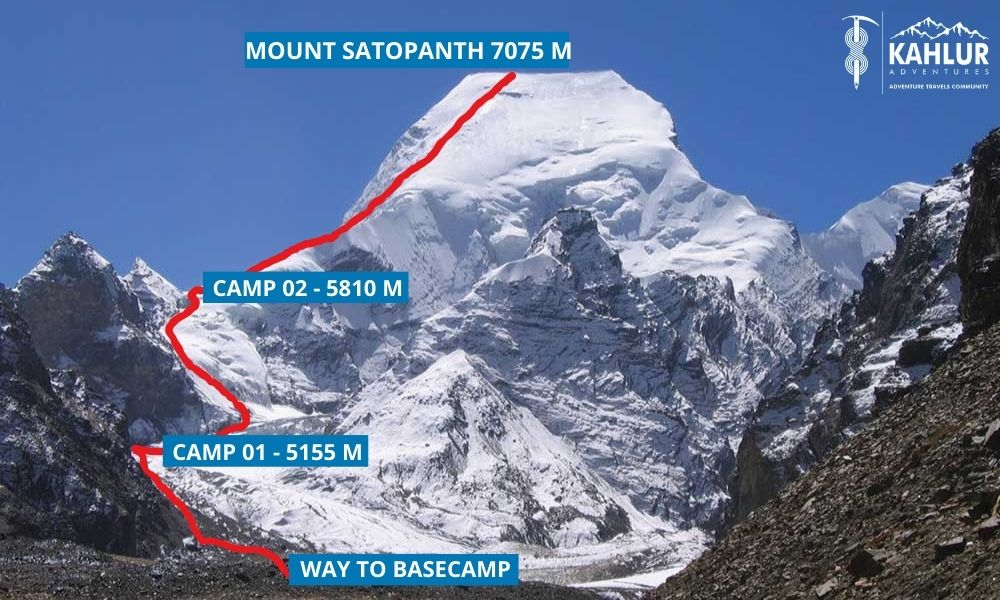
The expedition starts in Rishikesh, where climbers spend a few days acclimatizing to the altitude. They then trek to the base camp of Satopanth, which takes around six days. At the base camp, climbers undergo technical training, which includes learning how to use crampons, ice axes, and ropes. The climb to the summit of Satopanth takes around 10 days and involves several campsites. The first campsite is at an altitude of around 4000 meters, and climbers spend a few days here to acclimatize. The second campsite is at around 5500 meters, and climbers spend a few more days here before pushing on to the higher camps. The final campsite is at around 6500 meters, and climbers make a summit push from here. The climb to the summit is challenging and involves navigating steep ice and rock faces. The view from the top is breathtaking and provides an excellent opportunity for climbers to practice their mountaineering skills.
In conclusion, pre Everest training is crucial for aspiring climbers, and climbing other peaks is an effective way to prepare for the summit. Mount Nun, Mount Kun, and Satopanth are three peaks in India that serve as excellent training grounds for Everest climbers. Kahlur Adventures is a leading adventure travel company that offers expeditions to these peaks, with experienced guides and support staff to ensure the safety and success of their clients. Climbing these peaks provides an excellent opportunity for aspiring Everest climbers to develop their technical skills, physical fitness, and mental strength, making them better prepared for the ultimate challenge of climbing Mount Everest.
———————————————————————————————————————————————————————-
- Best Mountaineering Expedition In India: Click here
- All About of Mountains of India: Click here
- Kahlur Adventures Instagram Account: Click here




No Comments